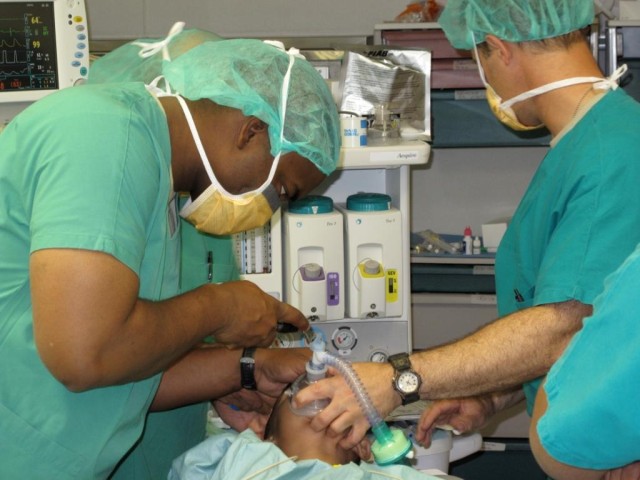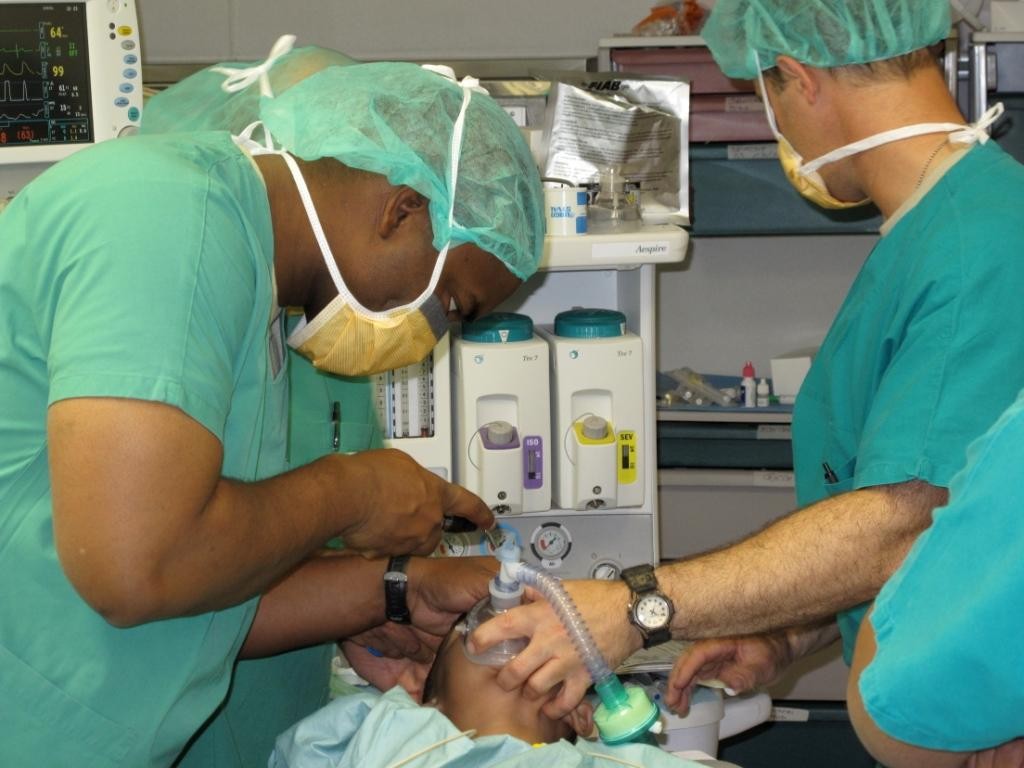
TALLIL, Iraq - An extremely concerned Iraqi father cradled his seven
month old son as he walked into a health clinic, here June 12, seeking medical help. There was something seriously wrong with his little boy's vision that demanded immediate attention.
Lucky for him and many other families, 225th Engineer Brigade's surgeon, Maj. Frederick Hall, was on a special health care mission at that clinic.
Hall, an ophthalmologist and native of Lafayette, La., was invited to
the clinic by the Italian Provincial Reconstruction Team and the Iraqi Advisory Task Force to help treat patients and provide partnership training for local Iraqi army doctors.
Hall prepped quickly to examine the baby under anesthesia.
Minutes later, Hall made the diagnosis. A mass had built up in the baby's left eye. It was retinal blastoma - eye cancer. If not treated swiftly, the child could die. Hall said he is thankful that he might have caught it in time.
"I don't think his father was told by a previous doctor how serious the condition was. I had to tell him bluntly what to expect," said Hall. "Hopefully, we can give the little boy a fighting chance."
The boy was one of 68 patients of all ages that Hall treated in three days. He said many of the children suffered from cross eyes and congenital cataracts; genetic disorders. For those cases, there was very little
Hall could do but to educate the parents.
"There is not much you can do with a lack of resources," said Hall.
"That is why I want to come back now that I saw the need and we can prepare for it ahead of time."
This is the first time in Hall's military career that he was asked to go on a mission based solely on his medical field expertise. He said it was good training for him, especially when he got the chance to interact with a fellow
Iraqi ophthalmologist and build on partnership efforts.
"I was able to fellowship with him and pick his brain," said Hall. "He was extremely knowledgeable. It was no different that working with partners back home."
But Hall said, the people in rural areas of Iraq are apprehensive about going to their doctor, especially since they lack some supplies and equipment needed for treatment. Hall is hoping more visits like this can improve overall health care rural parts like Tallil.
"Most of the resources are centered on Baghdad. It's difficult for these people to get there," he said. "We could bring the resources and instill confidence in the Iraqi people that their doctors are competent. I think the patients we saw have a better understanding that their own doctor is as good as a U.S. doctor."
Hall is now on a new mission. He said when he returns home next month for redeployment, he will assemble his civilian medical staff and return to Tallil on a humanitarian mission that will extend the arm of partnership.
"I love to help people, said Hall. "That is why I enjoy what I am doing. Any way that I can help people see better makes me feel really good."

Social Sharing